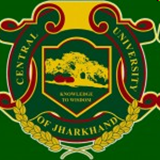
| Central University of Jharkhand, Ranchi |
“AKHRA-TRIBAL INDIA INTERNATIONAL FESTIVAL” -8th-10th November 2012 |
Akhṛa - We all meet |

|
|
Indigeneous Environmental Philopsophy in the Global Era |
Concept Note |
|
We live in a global age. The 21st century is characterized by unprecedented advances in technology, mass production, mega consumption and accelerating corporatizations of humanity including indigenous and tribal societies. The impact of the large scale global changes have been all but same, that is in one hand the divide between 20% rich and 80% poor has widened and on the other had changes in natural environments is creating severe challenges to humanity ahead. The dawning horizon of progress was blotted by the darkening cloud of global warming and extreme poverty for many. At the same time the indigenous people live in the vicinity of nature, threatened and marginalized, relying on the traditional ecological knowledge for their livelihood and survival. Indigenous people’s world view and cosmology still links their everyday life with immediate environment to fulfill the means and ends.
In recent years, there has been spectacular growth in awareness of environment degradation owing to rapid globalization and advancements in science and technology and the role indigenous environmental philosophy can play in tackling the challenges ahead all across the globe. 21st century knowledge economy has recognized the significance of indigenous wisdom and its contemporary relevance holding it to be an alternative local science which provides a new avenue to rethink the nature and meanings of development and progress. The epithets such as ‘subsistence economy’ ‘alternative development’, ‘sustainable development’, ‘Indigenous Knowledge System’, ‘Traditional Knowledge System’, ‘corporate sustainability’, and ‘green growth’ have become buzzwords in contemporary philosophical and scientific enquiries. Indigenous People’s Environmental Philosophy and wisdom are being held as response to the problems put forth by market and multinational capitalism owing to tribal communities’ close and ecologically sensitive cultural and economic practices. Today, environmental scientists are looking towards indigenous environmental knowledge to criticize industrial system of resource use with a focus on the mode of livelihood and nature-man symbolic order as an alternative model of progress and well-being. This year also marks 100th year of Indian ethnography as the first ethnographic work on Indian Tribe by an Indian writer, Dr. S. C. Roy ‘The Munda and their Country’ was published in 1912. We take this historical event to celebrate cultural ethos and worldview of indigenous communities from India and across the globe. It is felt that there is continuous interference of International actors in shaping of the local environmental future and NGOs, INGOs and state are coming together to impact the course of highly politicized global ecology. These international others are in dialogue with the indigenous people to incorporate their wisdom in mainstream discussion on climate change, ecological economics and sustainable well-being. The intellectual wisdom of indigenous peoples are gaining due place in self privileging western knowledge system. The question of sustainability of life on planet was recently answered by the corporates in the form of Corporate Social Responsibility (CSR). The responses of corporates and counter response of Indigenous people requires sustained attention of scholars for demystifying the instrumentality of CSR. |
Tentative Programme Schedule for Seminars |
||||||||
|